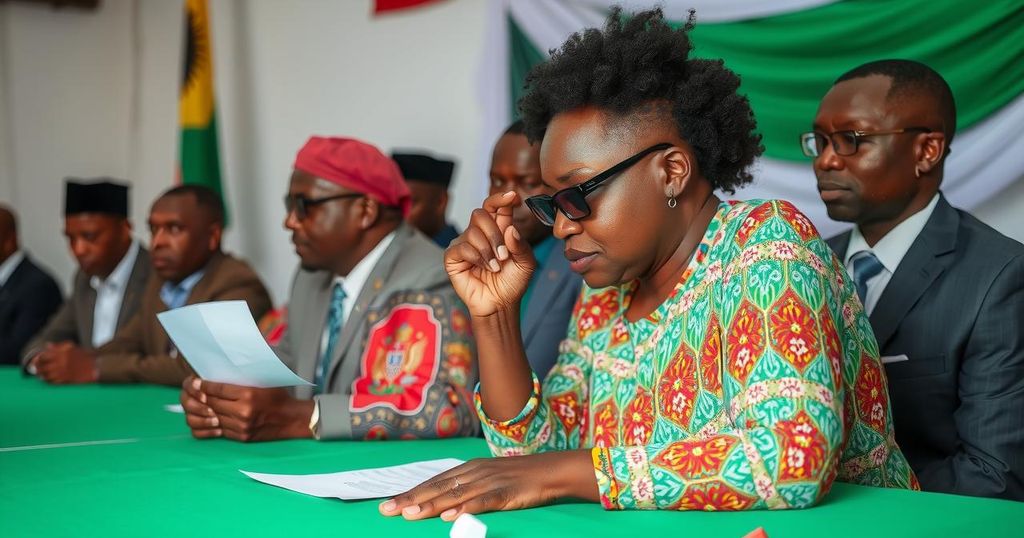Comoros Parliamentary Election Marked by Opposition Boycott and Allegations of Authoritarianism

Comoros has conducted a parliamentary election that several opposition leaders chose to boycott, alleging authoritarianism and raising concerns about the election’s integrity. With approximately 330,000 registered voters amid low turnout expectations, President Assoumani participates actively, despite accusations of electoral malpractice from prior elections. Comoros’ ongoing struggles with political instability are exacerbated by Assoumani’s power accumulation amid environmental threats from Cyclone Dikeledi.
The Comorian nation has recently conducted a parliamentary election amidst significant opposition. Several opposition leaders have chosen to boycott the election, alleging that President Azali Assoumani and his ruling party are increasingly authoritarian and questioning the election’s integrity. On this single-day voting occasion, the elected body will comprise 33 legislative seats, with results anticipated next week. Approximately 330,000 of the 850,000 residents in Comoros were eligible to vote, but opposition voices suggest discontent with the electoral process may lead to low voter turnout.
President Assoumani’s party, the Convention for the Renewal of the Comoros, previously secured 20 of the 24 contested seats in the last election held in 2020. Recently, he cast his ballot in Mitsoudjé, his hometown on Grande Comore, underscoring his active participation in the electoral process. The opposition’s boycott stems from their view that the 2020 election was a sham, labeling it a “masquerade”. They further assert that Assoumani’s re-election violated democratic principles, leading to violent street protests.
The Juwa Party, led by former President Ahmed Abdallah Sambi, is among the opposition groups refusing to engage in this election, continuing their stance from the previous parliamentary vote. Comoros, an archipelago comprising three islands near Madagascar, has experienced instability marked by military coups since its independence from France in 1975. Assoumani, a former military figure, first took control by ousting the sitting president in 1999. He previously relinquished power in 2006 but returned to the presidency in 2016, having since won three additional elections.
Notably, constitutional amendments in 2018 facilitated his evasion of term limits, contravening an earlier political agreement regarding presidency rotation among Comoros’ islands. According to the Africa Center for Strategic Studies, his administration has been characterized by escalating political oppression and non-competitive elections. Despite the impending threat of Tropical Cyclone Dikeledi, officials confirmed the elections were proceeding as scheduled, which highlights the urgency attributed to the democratic process in Comoros.
Comoros is an Indian Ocean archipelago that has faced political instability since gaining independence in 1975. The nation has endured numerous military coups, and President Azali Assoumani has been a notable figure in its tumultuous political landscape since he first seized power in 1999. His tenure has been marked by a series of elections that the opposition claims have been neither free nor fair, leading to widespread discontent among the populace. Recent constitutional changes have allowed Assoumani to extend his presidency beyond traditional limits, raising concerns about the erosion of democratic principles in the country.
In summary, the parliamentary election in Comoros unfolded against a backdrop of opposition boycott and claims of authoritarian governance by President Assoumani. The significant political contention and allegations of previous election irregularities have contributed to a climate of skepticism among the populace. As Comoros navigates potential electoral outcomes amidst environmental challenges, the implications for its democratic integrity remain to be fully realized, underscoring the ongoing struggles within the region for genuine political representation and stability.
Original Source: abcnews.go.com







